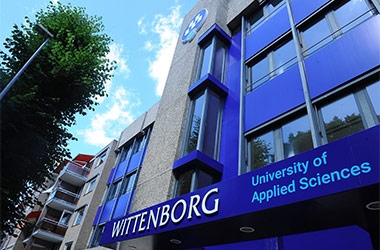Public Higher Education Must Speak More Dutch, Says Education Minister
Public Higher Education Must Speak More Dutch, Says Education Minister
Public Higher Education Must Speak More Dutch, Says Education Minister
https://www.wittenborg.eu/public-higher-education-must-speak-more-dutch-says-education-minister.htm
Expanding government control over higher education in the Netherlands
In an ongoing bid to make publicly funded higher education institutions less attractive for internationals, the Dutch Minister of Education, Culture and Science, Robbert Dijkgraaf, has submitted a letter to Prime Minister Mark Rutte arguing for Dutch to gradually become the main language of education in the Netherlands. So far, private schools like Wittenborg will be untouched by such measures. Dijkgraaf also believes that international students must be compelled to learn Dutch, even if they follow a fully foreign-language programme in the Netherlands. In the lengthy 26-page letter, Dijkgraaf points out that the Dutch education system is distinguished by its broad range of foreign-language programmes and says that Dutch must be “strengthened” in higher education. For this, he would like to set higher requirements for public institutions to be able to offer foreign-language study programmes. At the same time, he would like to encourage Dutch students themselves to study abroad.
He also argues that there is need for a “central management” system around higher education, especially regarding international student recruitment, in which he himself would retain the ability to “intervene” should he deem it necessary. Dijkgraaf expresses that in the future, as a rule, he would like to see only foreign students being recruited for courses which are related to the needs of regional society, with the condition that their recruitment does not put pressure on the capacities of education or local society. He argues this is to ensure the quality of local education does not falter under the pressure of incoming international students, which he believes could undermine the Netherlands’ international reputation as a top country for education. Further, he believes curbing the international student intake will help resolve the student housing shortage faced by Wittenborg's competitors. Additional proposed measures include creating a numerus fixus, or a maximum capacity number for foreign-only programmes.
Dijkgraaf also indicates that a centralised management infrastructure can be customised based on regional needs with regards to housing and labour. In Dijkgraaf's vision, the central management system would be given as a “project” to some coordinating body, which would then consistently observe each issue put forth in his letter. He noted the central themes of the proposed body's focus would be accessibility and sustainability of the education system. The body would also keep track of whether measures such as those proposed by Dijkgraaf or imposed by the EU positively benefit Dutch society in the long-term. Later in 2023 – in mid-June, according to rumours – his plans will be debated in the Tweede Kamer (House of Representatives). If the Tweede Kamer accepts his proposal, a new bill will be created with measures to be enforced no sooner than September 2024. Stakeholders in the education sector have expressed mixed reactions.
The head of international affairs at the University of Twente, Fred de Vries, noted that the language surrounding the expansion of Dutch in higher education is somewhat vague, though he believes it would help assimilate Dutch higher education institutions to institutional standards across Europe. While he believes that transitioning to Dutch will harm some programmes, he considers this is an acceptable loss. Meanwhile, certain members of the university of applied sciences (UAS) sector, such as Breda University of Applied Sciences’ academy of tourism director, Perry Hobson, have voiced their concerns. According to Hobson, while the number of internationals attending research universities has rapidly increased, the same is not true for the UAS sector, which has experienced stagnation and decline in student numbers. Amid the ongoing labour shortage in the Netherlands and across Europe, Hobson argues that UAS graduates provide the skilled workers which Dutch industry says it needs.
It should be mentioned that Dijkgraaf's letter indicates that research universities and UASs will be subject to different strategies. He notes that UASs take on a smaller share of international students, and – save for certain institutions – already use Dutch for a majority of their programmes. Nevertheless, he believes the government should intervene early to prevent problems from arising in the future, as they have at research universities. Hobson does recognise that the housing shortage and “Anglo-fication” of degrees are problematic for many institutions, indicating that these problems were related to the issue of many international students leaving the country following graduation. Hobbes says that increasing the level of Dutch language skills among students could help them connect better with the Dutch labour market and society, thereby encouraging them to stay after graduation. Despite this, compulsory teaching in Dutch is still taboo for many stakeholders in the education sector, as some argue it is a violation of academic freedom for the government to compel institutions to operate in a certain manner.
As noted, private institutions like Wittenborg will not be subject to such measures according to the discourse so far. Wittenborg recognises that the consequences of irresponsible recruitment by certain institutions have put strain on certain regions and is committed to responsible international recruitment and integration into Dutch life. The school hopes that the anticipated debate in the Tweede Kamer will take note of the concerns raised by certain members of the education sector and will generate solutions which benefit all stakeholders.
WUP 09/05/2023
by Olivia Nelson
©WUAS Press
904 words